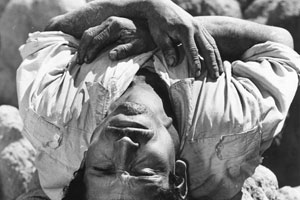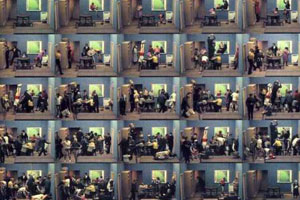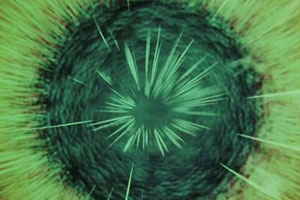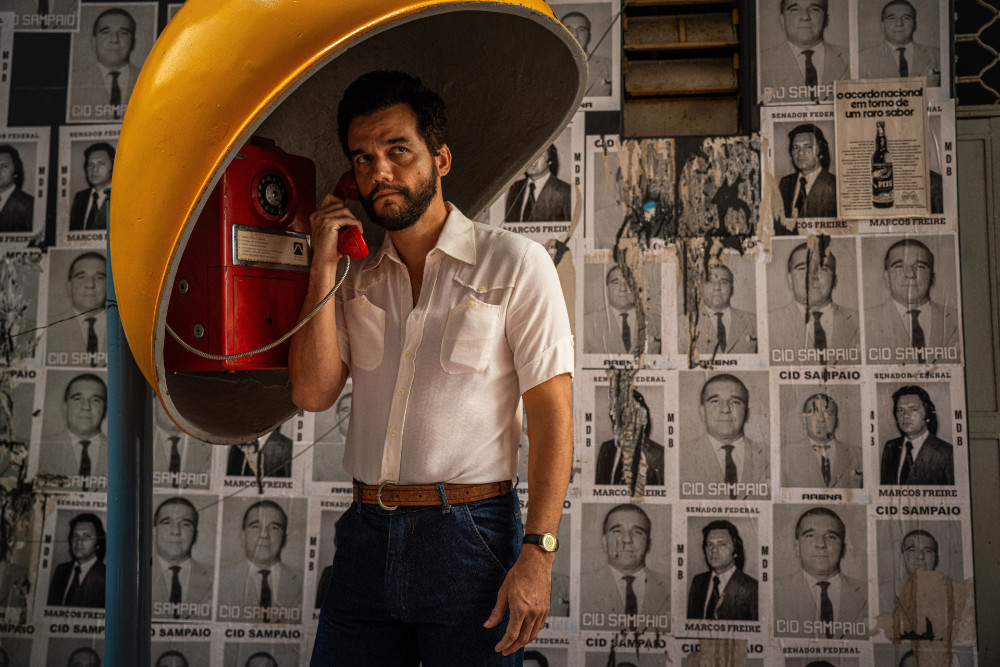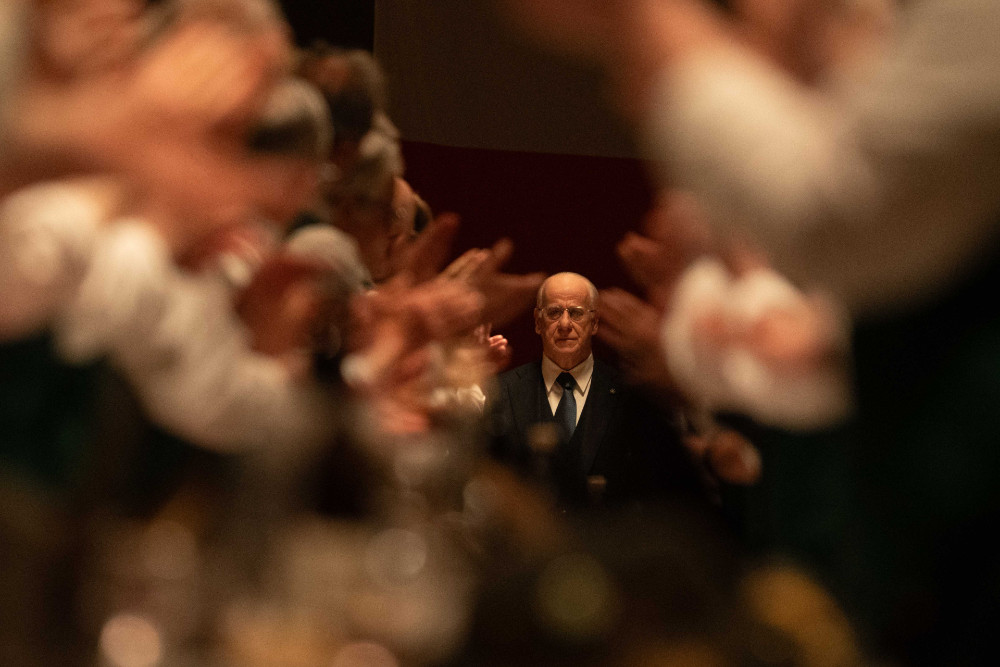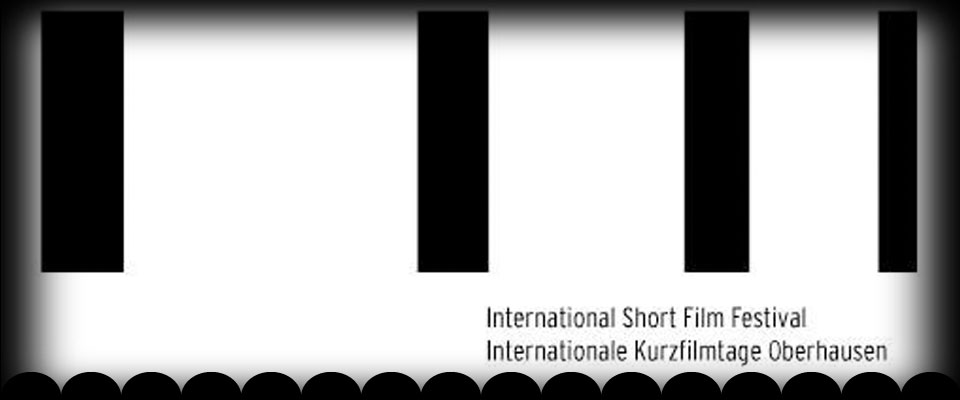
Program
Od samog početka 1954. godine Međunarodni festival kratkog filma Oberhausen jedan je od glavnih međunarodnih raskrižja kratke forme, jedinstven u rasponu formi i žanrova koje prezentira javnosti, osobito je dobro poznat po usmjeravanju pažnje na eksperimentalni film. U kratkom filmu, sve je moguće: formalno , sadržajno ili estetski. Teško odrediv, iznimno otvoren - i zbog toga beskrajno fascinantan - kratki film ostaje neiscrpan rezervoar iz kojeg film, televizija, Internet pa čak i muzeji stvaraju nove vizualne jezike. Natjecateljski program u Oberhausenu je podjednako otvoren umjetničkim i filmskim trendovima, oni su ujedno izložbe i filmski programi. Festival je uvijek bio u potrazi za radovima koji prkose tradiciji, koji imaju hrabrosti isprobati nešto novo.
Od svog osnutka krajem 1950-ih Filmski arhiv Oberhausen rastao je ubrzanim tempom - dijelom zahvaljujući uspješnoj suradnji sa zemljama istočne Europe. Osim uobičajene politike otkupa svih nagrađenih filmova, od 1993. godine započela je nabava po principu posudbe svih njemačkih kratkih filmova u distribucijske svrhe. Kolekcija broji više od 1800 naslova, a obuhvaća više od 2600 kopija. S preko 100 filmova samo iz Jugoslavije, uz dodatak kopija iz zemalja od Egipta do Zambije, jedinstven položaj i značaj ove međunarodne kolekcije kratkog filma su očiti.
Nacionalne produkcije poput Češke, Velike Britanije, Francuske, Italije, Poljske i SAD-a su zastupljene, kao i zvučna imena filma poput Kennetha Anger i Santiaga Alvareza, Waleriana Borowczyka ili Jürgena Böttchera, Maye Deren, Claudea Gorettija, Jima Hensona, Wernera Herzoga, Takahikoa Iimura, Romualda Karmarkara, Alexandera Klugea, Karpa Godine, Jana Lenića, Georgea Lucasa, Toshioa Matsumotoa, Matthiasa Müllera, Romana Polanskog , Zbigniewa Rybczynskija, Aleksandra Sokurova, Jan Svankmajera, Istvana Szaboa, Alaina Tannera i Želimira Žilnika.
The International Short Film Festival Oberhausen Since the very beginning in 1954 the International Short Film Festival Oberhausen is one of the major international crossroads for the short form, unique in the range of forms and genres it presents to the public, and particularly well known for its spotlight on experiments. In short film, anything is possible: formally, content-wise, or aesthetically. Hard to pin down, extremely open – and for that reason endlessly fascinating – short film remains an inexhaustible reservoir from which cinema, television, Internet and even the museum cull new visual languages. Oberhausen’s competitions are equally open to artistic and cinematic trends, they are exhibitions as well as film programmes. The festival has always been looking for works that defy tradition, that have the courage to try out something new.
The Oberhausen Film Archive From its initiation at the end of the 1950's, the archive grew at a rapid pace - thanks in part to successful cooperations with Eastern European countries. Starting in 1993, the general archive policy of purchasing prize-winning films was extended to include the acquisition on a loan basis of German short films for distribution purposes. The collection now amounts to more than 1,800 titles, encompassing over 2,600 prints. With over 100 films from former Yugoslavia alone, in addition to prints of films from countries ranging from Egypt to Zambia, the unique standing and significance of this international short film collection are evident.
Filmmaking nations such as the Czech Republic, Great Britain, France, Italy, Poland, and the USA are represented, as are prominent names in film such as Kenneth Anger and Santiago Alvarez or Walerian Borowczyk, Jürgen Böttcher, Maya Deren, Claude Goretta, Jim Henson, Werner Herzog, Takahiko Iimura, Romuald Karmarkar, Alexander Kluge, Karpo Godina, Jan Lenica, George Lucas, Toshio Matsumoto, Matthias Müller, Roman Polanski, Zbigniew Rybczynski, Aleksandr Sokurov, Jan Svankmajer, Istvan Szabo, Alain Tanner and Zelimir Zilnik.
U sklopu
Latino - američko iskustvo
The Latin American Experience,
Nadrealna animacija
Surreal Animation,
Rubovi SAD-a
Fringes of U.S.,
